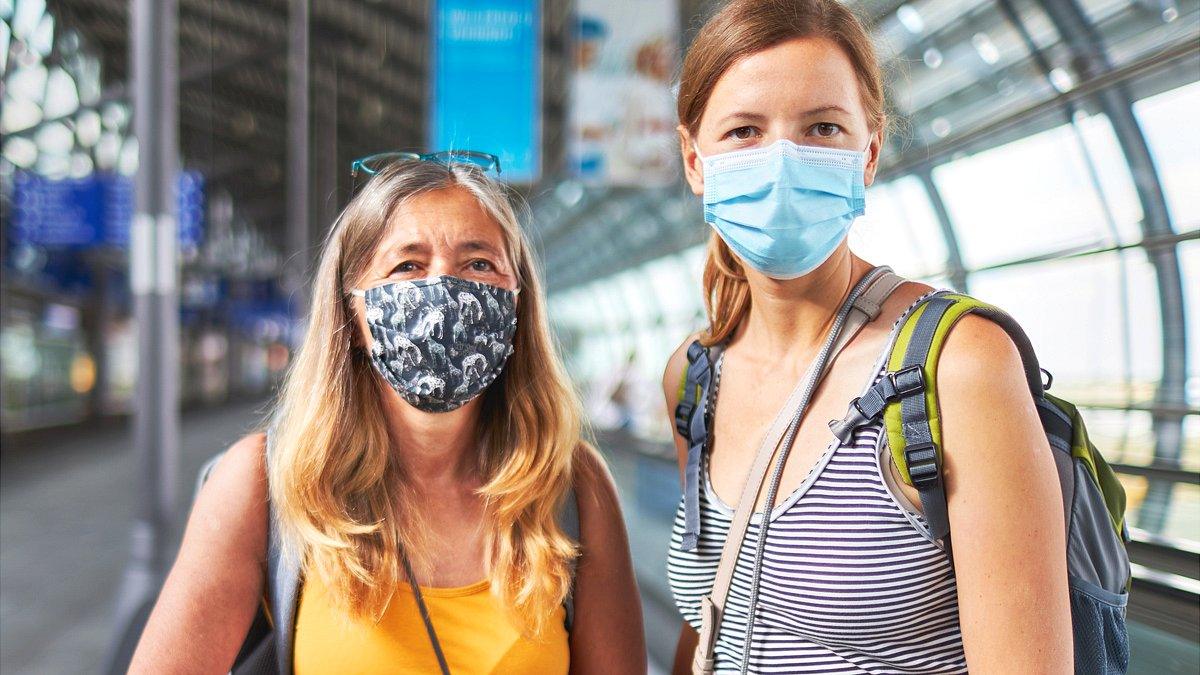Canary Islands: Holidaymakers react as quarantine deadline passes
- Published
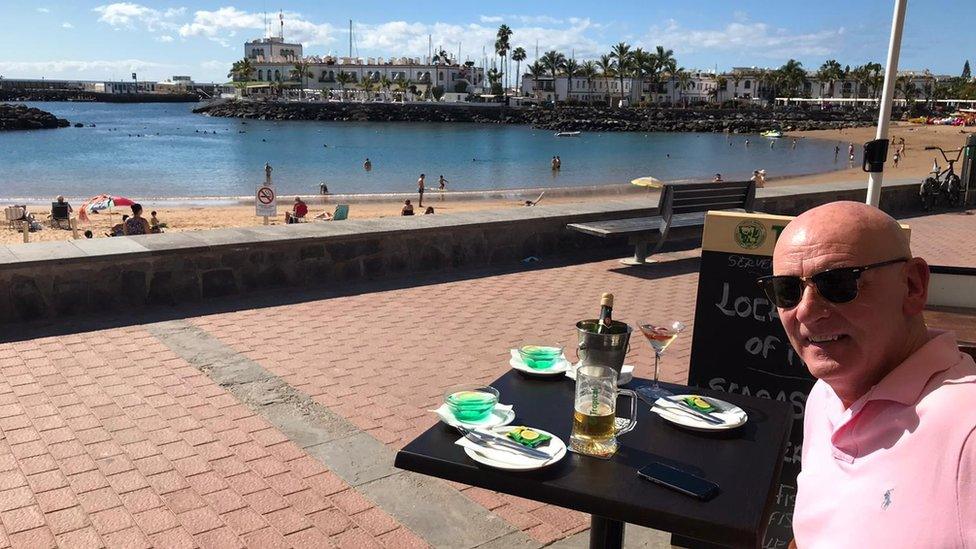
A smiling Steve in Gran Canaria before the government's travel corridor announcement
"We have paid the best part of £2,000, we thought it was worth the investment for a relaxing week in the sun but we're flying back stressed," says Steve Jennings, from Liverpool.
The retired chief executive was on holiday in Gran Canaria when he heard the news that the government had changed the quarantine rules for the Canary Islands.
From Saturday morning, anyone returning to the UK from the islands has to self-isolate. Although the quarantine period is being cut to 10 days from next week, anyone who doesn't get back in the next few days could see their Christmas plans at risk.
For Steve, 61, the news left him anxious as he scrabbled to find out how he and his partner Lynn - who has hospital appointments booked next week - could avoid the quarantine.
"It leaves us totally confused and anxious," he said. "It tends to ruin the end of the holiday."
Like many, Steve is pinning his hopes on the government's new testing scheme, external which lets travellers to England cut their quarantine by half if they pay for a Covid test after five days.
But the scheme - called test-to-release - doesn't launch until Tuesday and the list of approved providers has not been published yet.
"The thing that brasses me off [is] you like to be proud of your government and civil service," he says. "This [scheme] is due to be launched on Tuesday, here we are still with no details."
Christmas under threat
For other Brits in the Canaries, the pressure is on to make sure they're back in the UK with enough time to quarantine before Christmas, so their festive plans aren't ruined.
"I was extremely stressed on Thursday," says David Evans, 23, a DJ living and working in Fuerteventura.
"From when I got home from work at 6/7pm, I didn't do anything until 1am except talk to family members, talking to work, to my housemate, trying to work out what to do."
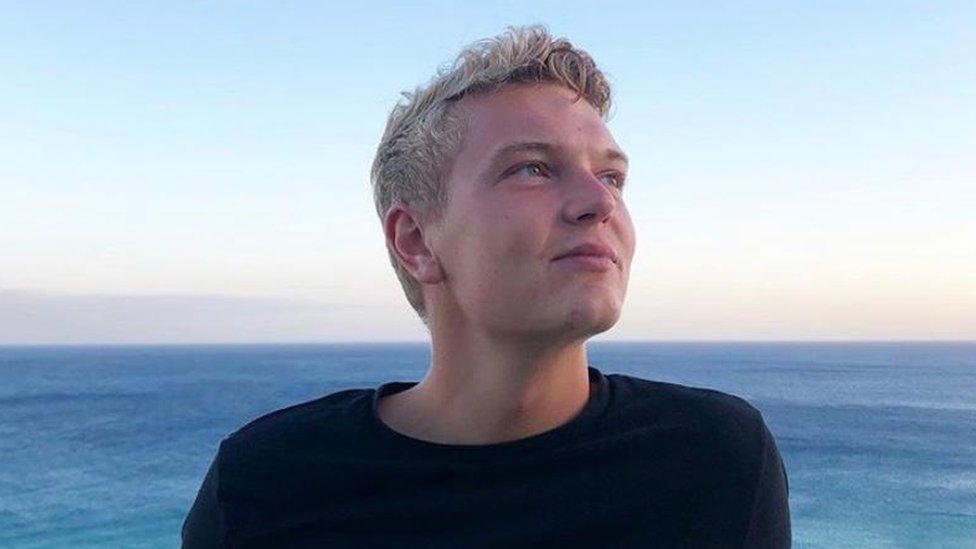
David DJs in clubs and on the beach, and says he has around five gigs next week
He is due to fly back to Brighton next week and plans to get a test, ahead of hopefully seeing his parents and nan at Christmas. "I already have some gigs lined up so can't come back any earlier," he says.
David says he thinks the Canary Islands should be treated individually by the UK government when it comes to quarantine rules.
The government has said data suggests cases are rising in the Canaries, but David points out the number of cases in Fuerteventura is lower than in other islands.
"I'd like to see them separate the islands as Tenerife seems to be the problem," he says. "They've done this with the Greek islands, why not the same for the Canaries?"
Keith Baldwin, from Liverpool, agrees and has emailed Transport Secretary Grant Shapps to ask why the islands aren't being treated separately.
"Tenerife is right off the scale with Covid. Lanzarote's a bit high. But Gran Canaria is right down," says Keith, who is in Gran Canaria.
"Work's not going to be happy [if I have to isolate]. I'm a support worker and we're short as it is."

TESTING: How do I get a virus test?
LOOK-UP TOOL: How many cases in your area?
YOUR QUESTIONS: We answer your queries
GLOBAL SPREAD: How many worldwide cases are there?

The Foreign Office has not changed its travel advice for the Canary Islands, meaning many holidaymakers who were due to go on holiday may be unable to seek refunds or claim on their travel insurance policies as companies will not cancel bookings.
One such holidaymaker was Kathy Hemingway, from East Yorks, who was due to fly to Fuerteventura on Saturday.
She paid £170 to get Covid tests done on top of her holiday, which she can't get a refund for from Tui as the FCO have not changed the travel advice rules.
"We can move our booking," she adds. "We have to pluck a date out of the air. We have no idea when it will be safe to travel."
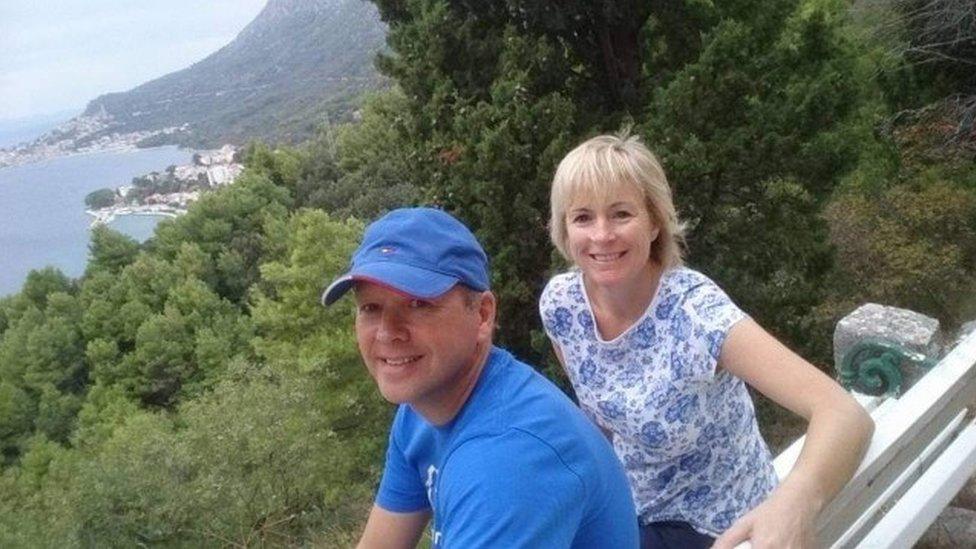
Kathy had already changed her holiday destination twice, from Mexico to Lanzarote, then to Fuerteventura
'I feel safer abroad'
Other holidaymakers have highlighted how safe they feel in the Canaries. Everyone aged six and over must provide a negative test, external when arriving into Spain, and when checking in to tourist accommodation in the Canaries.
"I feel safer in Tenerife than I do back in Scotland," says Philip Knight, who has been on holiday with his partner Luke in Tenerife, but flew back two days early on Friday.
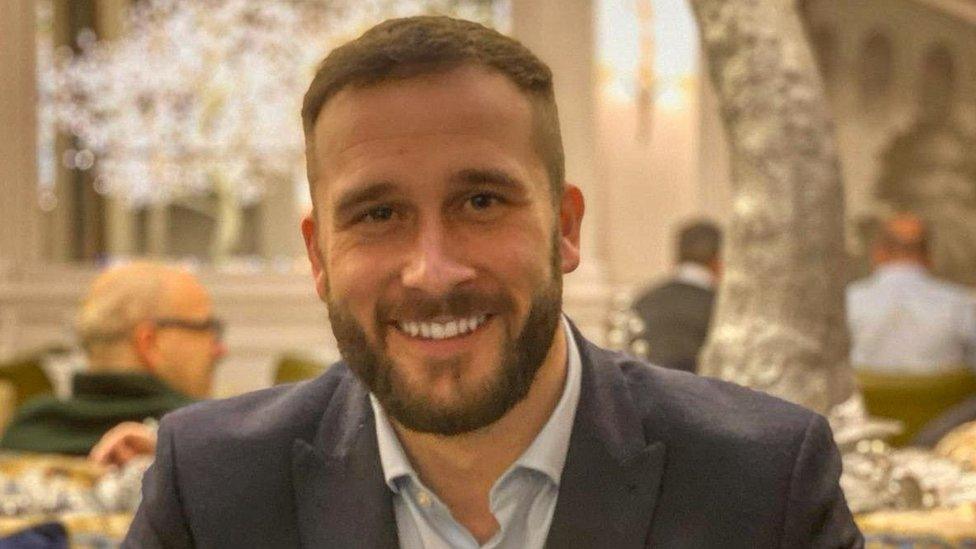
Philip says he fears the impact this will have on the local economy
"I, and every other holiday-maker had to get a Covid-19 test before coming here," he says. "Everyone must wear a mask at all times (in the street etc), there are no exemptions unless a doctor provides a certificate. Everyone obeys this.
"There is a curfew at 11pm which is enforced strictly by the police and respected by the residents and tourists. Everyone must be in their property and remain there till 6am.
"The island is quiet with no crowds and only groups of four.
"The UK government has therefore made me return to the UK which has a higher rate of infection with less protection (i.e. no masks and no curfew)," adds Philip, a partner in an Edinburgh law firm.
Lee Rowell-Burton, from Manchester, says he and his wife "have had no personal contact with anyone" since arriving in Fuerteventura to fix a problem at their apartment.
"We took a private PCR test on 7 December to get here, costing £120 each, which both came back negative.
"Now we have to either self-isolate or take another test, at our own expense, after five days. Another test? That's another £120 we don't have. I'm supposed to be back to work on Monday."
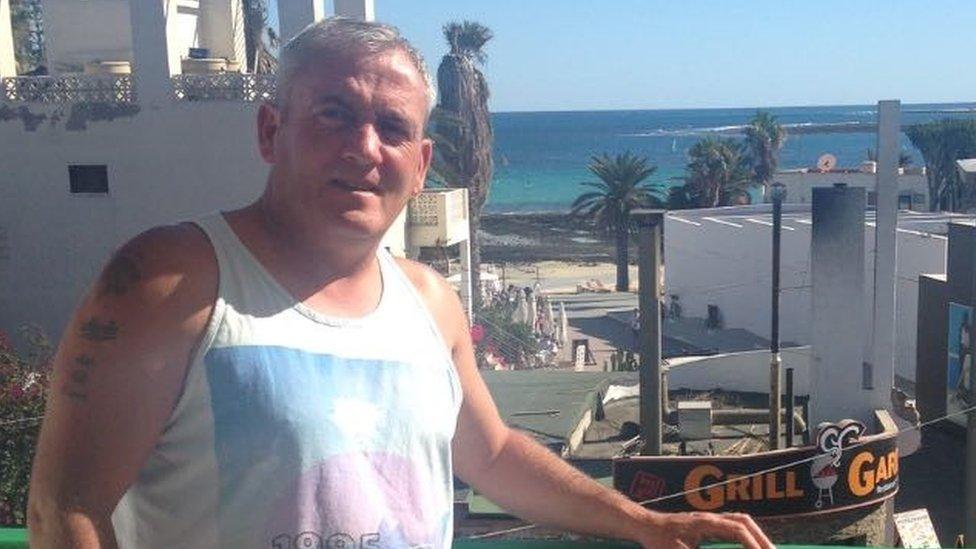
"It's so safe here," says Lee, in Fuerteventura
He adds: "We are both extremely careful as we both have lost relatives to Covid-19 and are on one of the safest Canary Islands to visit, and only for five nights, yet still are having to self-isolate on our return? Ridiculous."
The news of the quarantine change came on Thursday, in a tweet by Mr Shapps, external who said data indicated weekly cases and positive tests were increasing.
The government has previously said that decisions about which places go on or off the list are based on a range of factors, not just case rates.
The Department for Transport said in a statement on Saturday the government had been "consistently clear" that it would take action rapidly if the public health risk became too high.
"Throughout the outbreak, all our decisions have been based on the best scientific evidence," it said. "Any emerging evidence is continually monitored and considered in the government's policy making."
When the test-to-release scheme opens on Tuesday, anyone already self-isolating after travelling to the UK is able to book in a test.
- Published20 December 2023
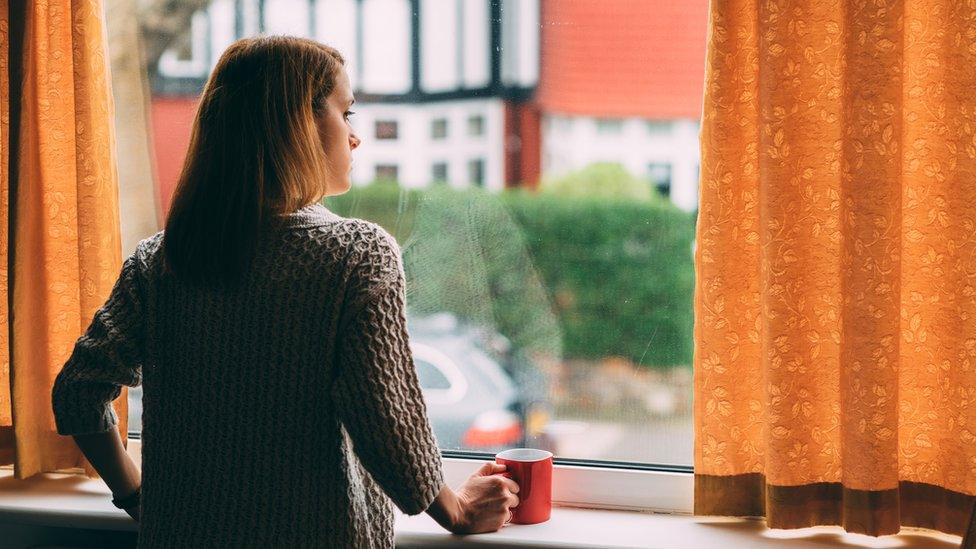
- Published11 February 2022

- Published10 December 2020
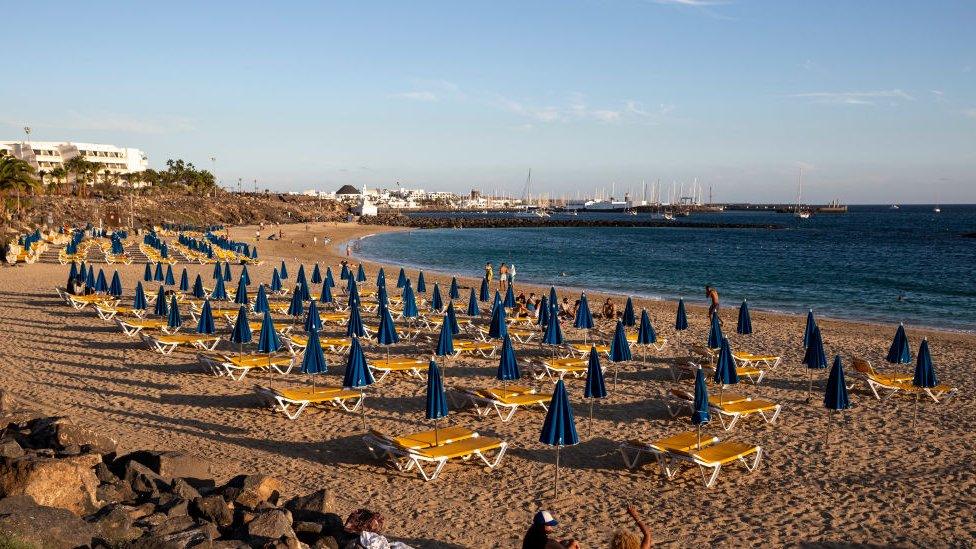
- Published11 December 2020
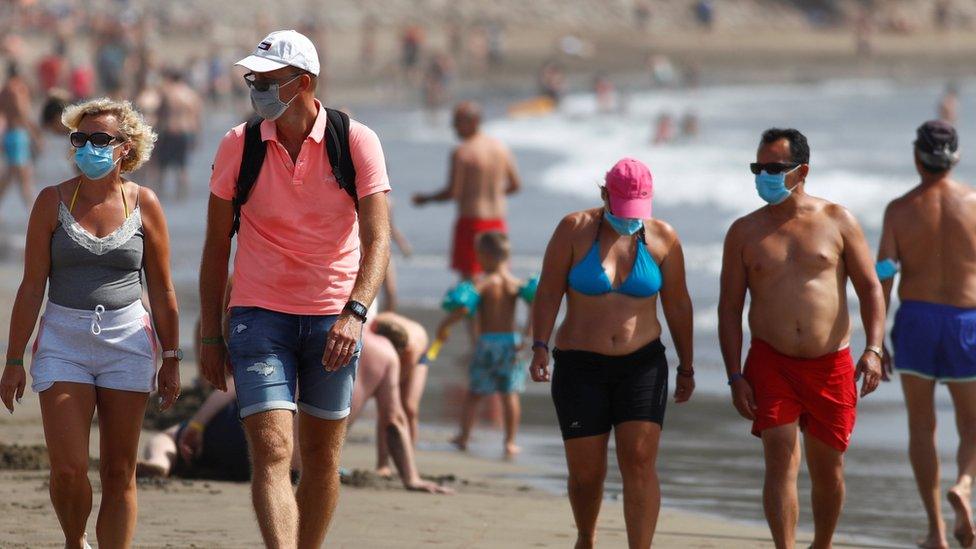
- Published29 November 2021
